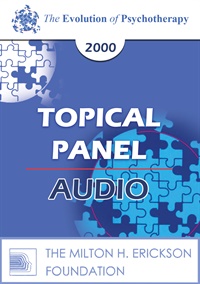EP00 Topical Panel 16 - The Therapy of Milton H. Erickson - Jay Haley, MA; Ernest Rossi, PhD; Paul Watzlawick, PhD; Jeffrey Zeig, PhD
- Average Rating:
- Not yet rated
- Topic Areas:
- Topical Panels | Milton Erickson | Ericksonian Hypnosis and Therapy Techniques | Ericksonian Psychotherapy
- Categories:
- Evolution of Psychotherapy | Evolution of Psychotherapy 2000 | Pioneers in Couples and Family Therapy
- Faculty:
- Jay Haley, MA | Ernest Rossi, PhD | Paul Watzlawick, PhD | Jeffrey Zeig, PhD
- Duration:
- 54 Minutes
- Format:
- Audio Only
- Original Program Date:
- May 28, 2000
- License:
- Never Expires.
Description
Description: Milton H. Erickson’s innovative psychotherapy methods take center stage, including his directive style, interactive techniques, and deep attunement to patients’ language and experience. Panelists discuss his use of humor, detailed session planning, and belief in the patient’s capacity for self-directed change, emphasizing the lasting impact of his personalized approach.
Moderated by Camillo Loriedo, MD.
Educational Objectives:
- To compare and contrast clinical and philosphical perspectives of experts.
*Sessions may be edited for content and to preserve confidentiality*
Credits
Handouts
| Timestamped Transcript (745 KB) | 16 Pages | Available after Purchase |
| Ericksonian Learning Snapshot (251.3 KB) | 2 Pages | Available after Purchase |
Faculty
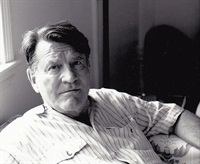
Jay Haley, MA Related Seminars and Products
Jay Haley (M.A., 1953, Stanford University) was Director of Family Therapy Institute of Washington, D.C. He was one of the leading exponents of the strategic/interpersonal approach to family therapy. Haley served as Director of the Family Experiment Project at the Mental Research Institute and as Director of Family Therapy Research at the Philadelphia Child Guidance Clinic. He has authoered seven books, co-authored two and edited five. Additionally, he has more than 40 contributions to professional journals and books. Haley is the former editor of Family Process, and the first recipient of the Lifetime Achievement Award of The Milton H. Erickson Foundation.
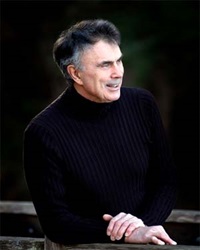
Ernest Rossi, PhD Related Seminars and Products
Ernest L. Rossi, PhD, is an internationally renowned therapist, teacher and pioneer in the psychobiology of mind-body healing. The author of more than 24 professional books, Dr. Rossi worked with Milton Erickson for eight years and co-authored three classic volumes on therapeutic hypnosis with him. Rossi has also edited four volumes of Erickson's Collected Papers and four volumes of Erickson's Seminars, Workshops and Lectures. He has been conducting research in the psychosocial genomics of ultradian rhythms and their relation to mind-body healing and psychotherapy for over three decades.
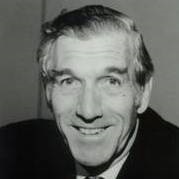
Paul Watzlawick, PhD Related Seminars and Products
Paul Watzlawick, received his Ph.D. from the University of Venice in 1949. He has an Analyst's Diploma from the C.G. Jung Institute for Analytic Psychology in Zurich. Watzlawick has practiced psychotherapy for more than 30 years. He was research associate and principal investigator at the Mental Research Institute. He was Clinical Professor at the Department of Psychiatry and Behavioral Sciences, Stanford University Medical Center. Watzlawick is a noted family therapist; he is recipient of the Distinguished Achievement Award from the American Family Therapy Association. Also, he is author, co-author or editor of eight books on the topics of interactional psychotherapy, human communication and constructivist philosophy.
He formulated five axioms. They are:
- It is not possible to not communicate. Every behavior is some kind of non-verbal communication.
- Every communication has a content. In addition, there is 'metainformation', which says how the communicator wants to be understood.
- All partners involved in a communication process also interpret their own behaviour during communication.
- Human communication involves both verbal and non-verbal communication. In addition to the spoken words, there are is also a non-spoken part (gestures, behavior, intonation..) which is part of the communication.
- Communication between humans is either symmetric or complementary. This is based on whether the relationship of those communicating is based on differences or parity.
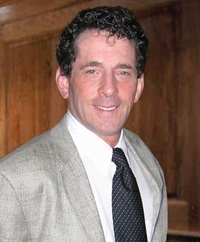
Jeffrey Zeig, PhD Related Seminars and Products
Jeffrey K. Zeig, PhD, is the Founder and Director of the Milton H. Erickson Foundation and is president of Zeig, Tucker & Theisen, Inc., publishers in the behavioral sciences. He has edited, co-edited, authored or coauthored more than 20 books on psychotherapy that appear in twelve foreign languages. Dr. Zeig is a psychologist and marriage and family therapist in private practice in Phoenix, Arizona.


